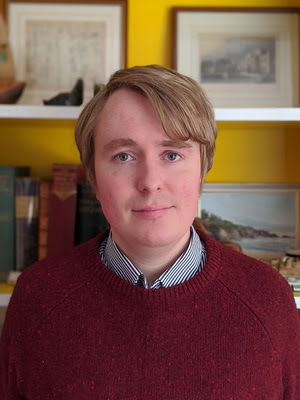Staff profile
Fergal Leonard

Biography
Project overview
My project explores the regional political culture of the West March, the north-western frontier of England. It examines how individuals from this geographically-isolated region participated in regional governance and interacted with the broader Elizabethan polity, foregrounding the agency of the West March community in shaping their experience of governance, pursuing their own interests and ambitions, and ultimately contributing to the evolution of the early modern state.
I am grateful to the Wolfson Foundation, whose funding has made my research possible.
Research interests
I am interested in political engagement across the social spectrum, especially that which showed awareness of the dynamics of court politics. As part of this, I explore popular participation in regional governance, and cooperation with the administrative and judicial apparatus of the early modern state. My own focus is on a region with a strong character of a semi-militarised frontier zone, and I am interested in the study of frontiers and border regions throughout Europe and the wider world.
Seminars and conferences
- Feud and feud-resolution in the Anglo-Scottish borders, c. 1580 – 1606 (Cambridge Legal and Social History Workshop, October 2021).
- Burghley and the borders: William Cecil and the governance of the Anglo-Scottish frontier (Burghley 500 conference, St John's College, Cambridge, September 2021).
- The “auncient enemie”, “commone enymies”, and “badd borderers”: national identity and national loyalty on the Anglo-Scottish frontier, 1580 – 1603 (‘Enemies in the early modern world’ digital conference, March 2021).
- Borderers, surnames, and “Ryders and ill doers”: the identification of an unruly ‘other’ on the Anglo-Scottish frontier, 1570 – 1603 (Newcastle Postgraduate Forum seminar, October 2021).
- In hunt of strange gods: Henry Leigh and the pursuit of preferment in the English and Scottish courts, 1585 – 1603 (Durham Early Modern Conference, June 2020; abridged paper presented online after the cancellation of DEMC 2020).
- "The poor people cry and call for you and your blood to rule them": The Dacre tenantry and the politics of protest, resistance, and rebellion, 1566 – 1570 (MEMSA seminar, February 2020).
- “Addicted to a Dacre”: Leonard Dare, the Rising of the North, and the politics of rebellion (Durham-Münster joint workshop, WWU Münster, November 2019).
- “A good subject for the current time”: the political and confessional loyalties of Henry Leigh, 1590 – 1603 (‘From Rebellion to Reconciliation’ conference, Durham University, September 2019).
- “Such ordinary company of evil men”: the experience of travel, ambition, and opportunity, 1590 – 1603 ('Travel, movement, and exploration in the medieval and early modern world’, MEMSA 13th annual postgraduate conference, Durham University, July 2019).
- “The insolencies of the Grahams”: authority and order on the Anglo-Scottish frontier, 1593 – 1603 (Newcastle Postgraduate Forum conference, May 2019).
- Feud and feud-resolution in the Anglo-Scottish borders, c. 1580 – 1606 (Cambridge Legal and Social History Workshop, October 2021).
- Burghley and the borders: WIlliam Cecil and the governance of the Anglo-Scottish frontier (Burghley 500 conference, St John's College, Cambridge, September 2021).

